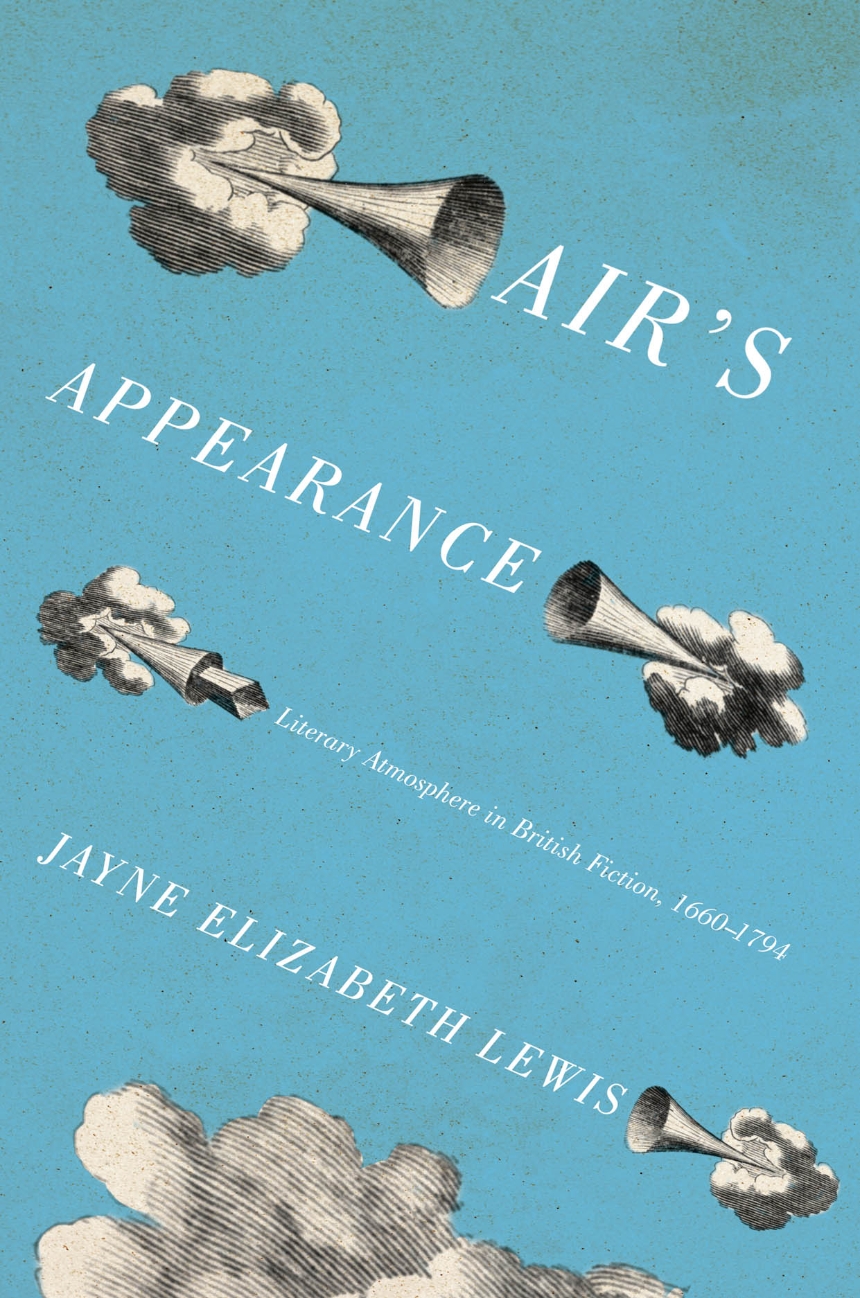Air’s Appearance
Literary Atmosphere in British Fiction, 1660-1794
In Air’s Appearance, Jayne Elizabeth Lewis enlists her readers in pursuit of the elusive concept of atmosphere in literary works. She shows how diverse conceptions of air in the eighteenth century converged in British fiction, producing the modern literary sense of atmosphere and moving novelists to explore the threshold between material and immaterial worlds.
304 pages | 8 halftones | 6 x 9 | © 2012
History: British and Irish History
Literature and Literary Criticism: British and Irish Literature
Reviews
Table of Contents
List of Figures
Acknowledgments
Introduction
1. Rounds of Air
2. “Other Air”: Boyle’s Spring, Milton’s Fall, and the Making of Literary Atmosphere
3. “Discontented Air”; or, The Rape of the Lock
4. Novel Atmographies: Eighteenth-Century Weather Writing and the Atmospheres of Robinson Crusoe
5. Spectral Currencies and the Air of Reality in A Journal of the Plague Year
6. The Dissipation of Tom Jones
7. Glanvill’s Ghost, Cold Sociability, and “the Cure of Arabella’s Mind”
8. In Factitious Airs: Radcliffe’s Priestley
9. Priestley’s Radcliffe and the Experimental Gothic
2. “Other Air”: Boyle’s Spring, Milton’s Fall, and the Making of Literary Atmosphere
3. “Discontented Air”; or, The Rape of the Lock
4. Novel Atmographies: Eighteenth-Century Weather Writing and the Atmospheres of Robinson Crusoe
5. Spectral Currencies and the Air of Reality in A Journal of the Plague Year
6. The Dissipation of Tom Jones
7. Glanvill’s Ghost, Cold Sociability, and “the Cure of Arabella’s Mind”
8. In Factitious Airs: Radcliffe’s Priestley
9. Priestley’s Radcliffe and the Experimental Gothic
Notes
Index
